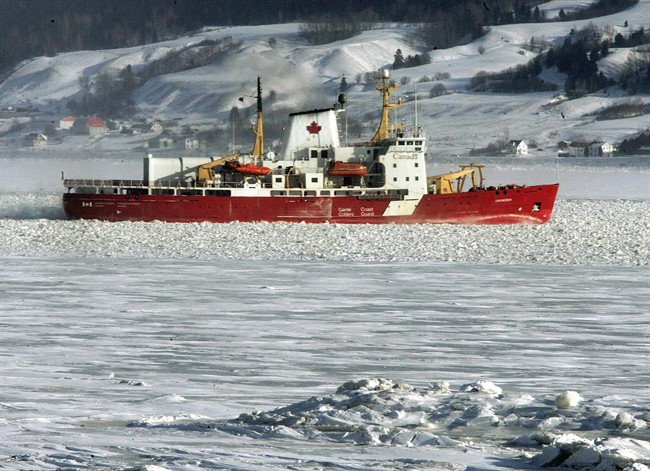YELLOWKNIFE – Post-mortem examinations have suggested that three men who died after a Canadian Coast Guard helicopter crashed in the Arctic perished from “cold water immersion.”

Cathy Menard, chief coroner of the Northwest Territories, says the examinations were done in Edmonton on Monday.
She says the tests showed there were no injuries on the bodies that accounted for the deaths of the men, meaning they likely survived the impact but died from the effects of being in the freezing cold water.
She estimates they were in the water for about an hour but says that hasn’t been conclusively determined yet.

Get breaking National news
The chopper crashed last week during a routine patrol to check ice conditions.
The Transportation Safety Board is still trying to retrieve the helicopter, which had been stationed on the icebreaker Amundsen, sailing through M’Clure Strait in the western Arctic.
Those killed have been identified as Marc Thibault, commanding officer of the ship, helicopter pilot Daniel Dube and Klaus Hochheim, a veteran University of Manitoba Arctic scientist.
Menard said the remains of the men have been released and will be returned to their loved ones on Wednesday.
She explained that cold water immersion is one of the stages of hypothermia.
“You get the shock of getting into the water, and then slowly as time goes you get more and more affected,” she said. “Your limbs don’t become as effective, so your legs and arms aren’t moving as free, so they become incapacitated. Then you go into hypothermia.”
How long that takes can vary depending on a person’s body fat and how cold the water is.







Comments